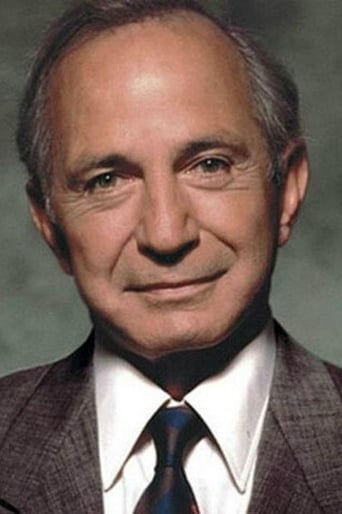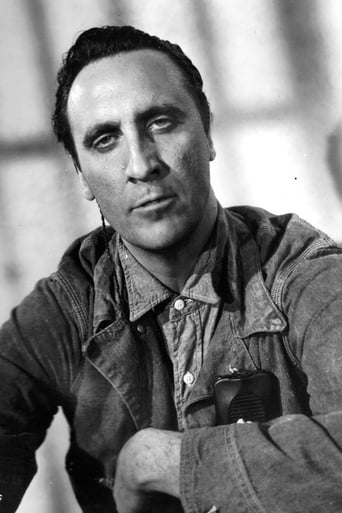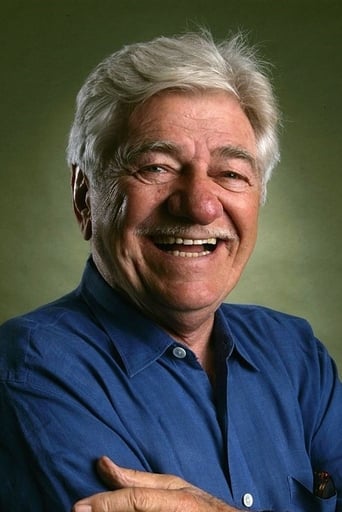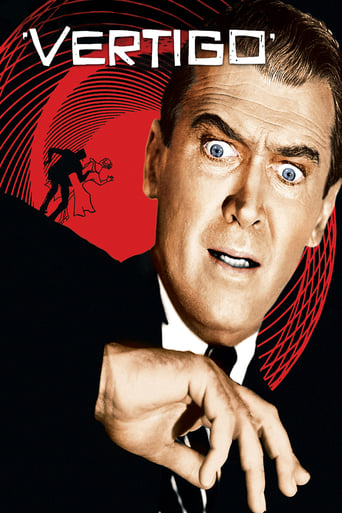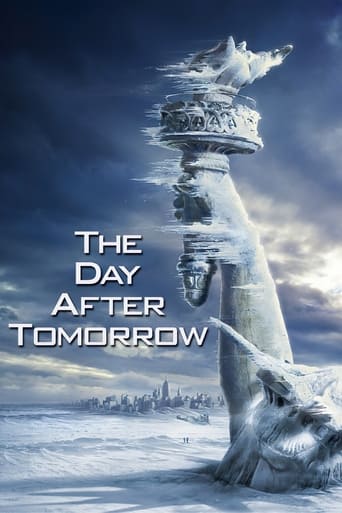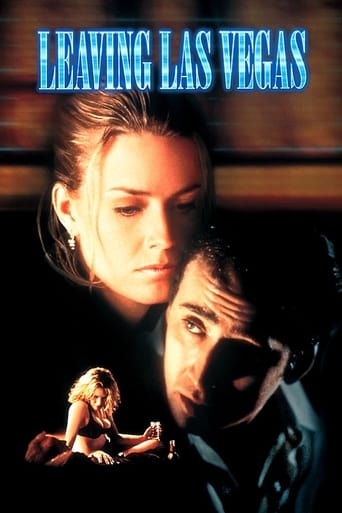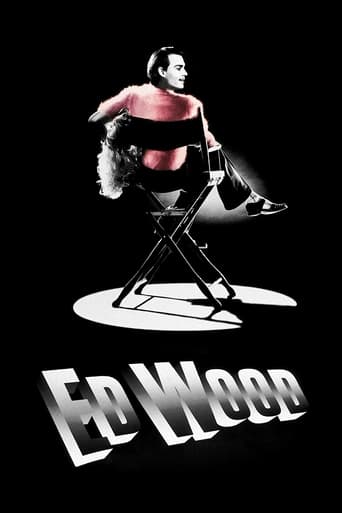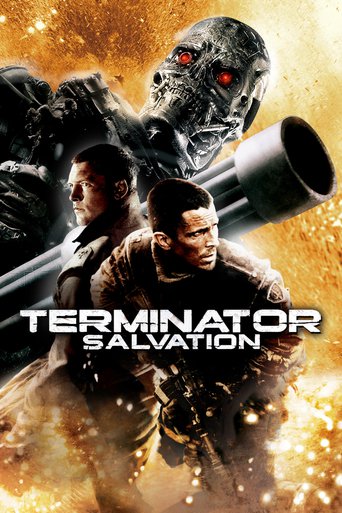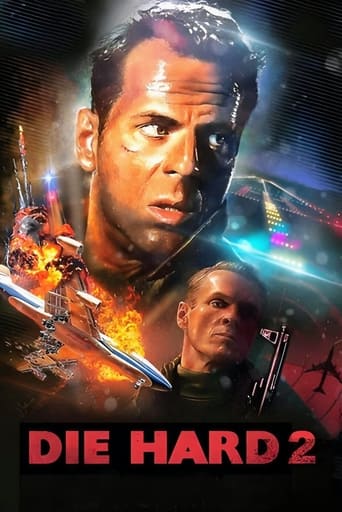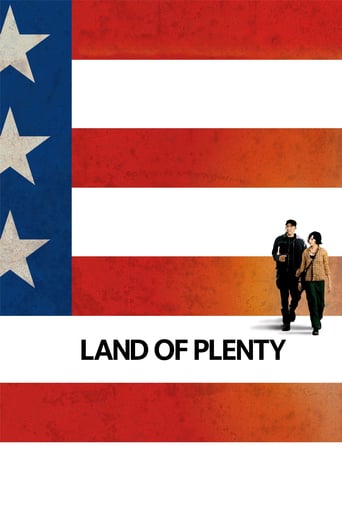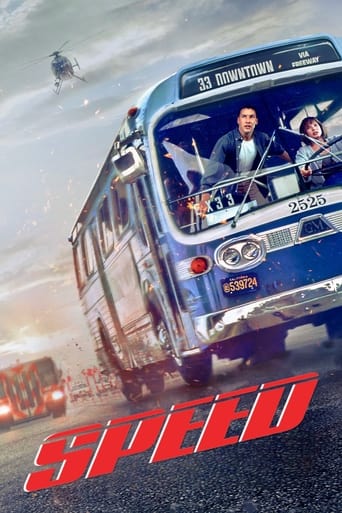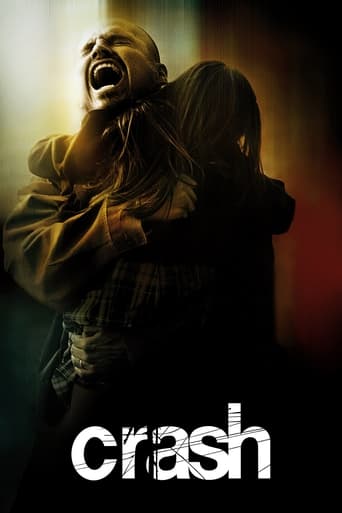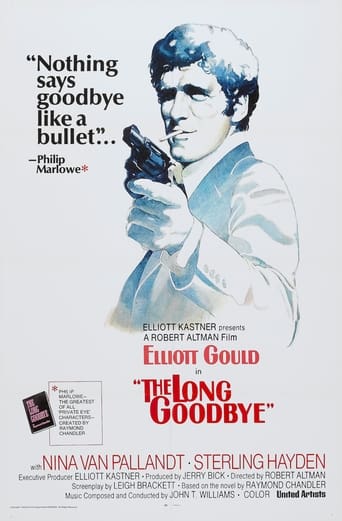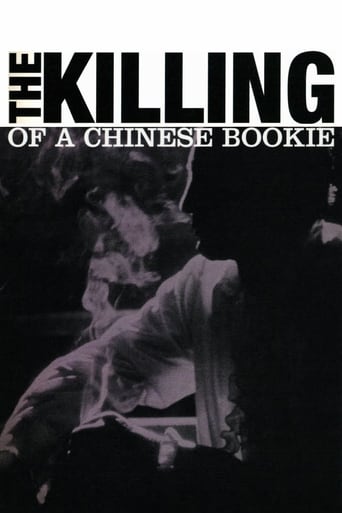
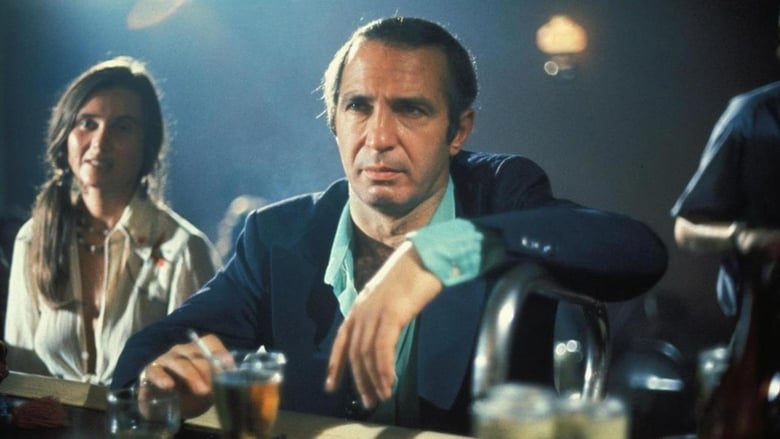
The Killing of a Chinese Bookie (1976)
Cosmo Vittelli, the proprietor of a sleazy, low-rent Hollywood cabaret, has a real affection for the women who strip in his peepshows and the staff who keep up his dingy establishment. He also has a major gambling problem that has gotten him in trouble before. When Cosmo loses big-time at an underground casino run by mobster Mort, he isn't able to pay up. Mort then offers Cosmo the chance to pay back his debt by knocking off a pesky, Mafia-protected bookie.
Watch Trailer
Cast


Similar titles
Reviews
NOTE: This film was recommended to me by John Henry Westhead for "Steve Pulaski Sees It," and the following review is a review of the 108 minute cut of the film instead of the 135 minute cut.The opening shot of John Cassavetes' The Killing of a Chinese Bookie lingers on Cosmo Vittelli (Ben Gazzara) as he leans against a wall that has a painted mural of a scantily clad woman, a fitting metaphor for the film that follows. Through subtle yet clear, distinct photography, Cassavetes shows that nudity and sexuality are the backbone for Vittelli and his business, a local nightclub. Without the reliance on being provocative and the presence of arousal, Vittelli's dime-a-dozen nightclub is nothing. This would all seem so obvious and self-explanatory if Vitelli wasn't so opposed to thinking that the half-naked dancers are the reason the house is jammed on a Friday or Saturday night.The film revolves around Cosmo's descent into dirty business with a sleazy loanshark (played by the film's producer Al Ruban) to pay off longstanding gambling debts, a recurring habit of Cosmo's in conjunction with running his club. Vitelli, who is always one to make deals that benefit both parties, decides to allow his loanshark and his friends to have one great night at the club, all expenses paid, even going as far as to allow them to gamble for free. With this, Vitelli has ostensibly paid off all of his debts, so to celebrate, he begins gambling again, eventually ending the night $23,000 in the hole and right back to the same place he freed himself from moments ago.The Killing of a Chinese Bookie shows the cyclical drudgery of gambling addiction; what begins as a casual, and even carefree, bout of seeing high highs and low lows turns into a vicious, compromising addiction that too often results in the gambler discovering his worst victim/enemy is himself. Vitelli loves his nightclub, but he loves the simultaneous thrill and laidback qualities of gambling even more to repeatedly put himself and his business in jeopardy.Vitelli is also delusional about his nightclub, not in the sense that his finances are in the best possible standing, but that people come to see the talent of the exotic dancers and not just their bodies. Vitelli and his team have the ladies put on elaborate shows with decorative set designs and costumes, and despite his team telling him otherwise, Vitelli believe it's the stories and the costumes that bring people in above anything else. Deep down, one wonders if he can regretfully admit that's not the case, but even so, that doesn't stop him from stringing together elaborate sets in the meantime.Ben Gazzara gives a strong, subtle performance as Vitelli. His character is often quiet, reserved, and even occasionally passive as he allows his actions to rightfully damn himself instead of fighting them, and Gazzara communicates the traits largely through facial expressions and his ability to convey power through his stature and presence. Vitelli is your typical club owner rather than your average bar owner in that he's quiet and he listens; he studies things around him, as we can tell when he's intently observing the activities at his poker table. These are all very low-key, conservative traits that Gazzara needs to embody to prevent his character from becoming too bombastic or too impressionistic and he nails the challenge beautifully.Encompassing Gazzara's performance is Cassavetes' and cinematographers Ruban and Mitchell Breit, who help detail the environment of this local nightclub. Cassavetes directs the shows with a lovely emphasis on essence and environment, showcasing the anomaly of such a medium-budget production being put on centerstage for a rather seedy nightclub. Actresses Alice Friedland and Azizi Johari, playing dancers decorated from top to bottom in fancy decor, are the stars of these lengthy scenes that do nothing but linger, like smoke expelling off of a cigarette. The result has the ability to put the most seasoned moviegoer (or Cassavetes fan, for that matter) into a deep-seated trance of admiration.The Killing of a Chinese Bookie is a nicely told story of disillusionment and delusion, two of the heaviest and most mentally taxing emotions a human being can bear alongside depression and stress. Embodying such lofty emotions is Gazzara at the center of a film that moves gracefully and liberally at just under a hundred and ten minutes, and encapsulating the film are lovely set designs that compliment the film's motions and interworkings. If only the film wasn't so disproportionately focused on Vitelli, even when nothing truly significant is occurring with his character, and we got more insight into the lives of his dancers could this be an all-encompassing long at a nightclub and not just the central part of it.Starring: Ben Gazzara, Al Ruban, Timothy Agoglia Carey, Seymour Cassel, Alice Friedland, and Azizi Johari. Directed by: John Cassavetes.
"The Killing is an innovative thriller trapped inside a bloated self-indulgent work of improvisational theater." I don't have much to add to this comment except to say that there is actually a pretty good story in here. It's well developed and escalates nicely. The protagonist, well played by Ben Gazarra, is truly an interesting (if not very likable) character.Unfortunately, the character and story are weighed down by interminable scenes from the tawdry shows-within-a-show that the main character produces in his strip club. These shows are just bizarre and amateurish. A few glimpses of them would have given us all we need to know about Cosmo Vitelli and his world, but instead we're subjected to these scenes over and over, in stultifying detail. It's just. . . boring.Another reviewer here has complained that Vitelli is wounded in a way that should be fatal, and yet he finishes out the movie as if he doesn't have a care in the world. That reviewer is right. It's just ridiculous and unbelievable.And then there's the complaint that killing the Chinese Bookie of the title--getting past the dogs and the guards--is way too easy for Vitelli. Also a legitimate knock against the movie.No one has mentioned that there's also some pretty bad cinematography on display here--scenes in which the camera follows so poorly during closeups that actors' eyes drift out of the frame.There's an interesting movie in here, but it's so amateurish and self-indulgent in places that that movie is suffocated.
Cosmo Vitelli is the man, the man ager with whom you must cut the bullshit and talk straight. And speaking of straight, he's definitely one of the manliest men who's neither a cop, nor a criminal, the man is a strip joint owner in Los Angeles. And from the first minutes of the film, he exudes a sense of magnetic self-confidence and charismatic toughness that automatically wins your sympathy; hence my deliberate abuse of the word 'man'.Ben Gazzara, at the pinnacle of his collaboration with director John Cassavetes, perfectly embodies the characteristics of the self-made-man in his forties, with a remarkable capability never to flinch even in the most extreme situations. His suave voice would make any female heart melt while his enigmatic look combined with a tense smile could betray a small ounce of sensitivity, but any true hint of vulnerability is totally masked behind the naturally cool strength of Cosmo Vitelli. And this feeling is reinforced by the context in which we discover him, when he's just finished to pay a longstanding debt.And Cosmo, while relieved from the debt of that sleazy loser, doesn't hesitate to finally express all the contempt he had for him, with a smile that tells a lot about his nerve. Talk about a way to set a great character, whenever we follow Cosmo, we trust him, for one thing, we almost feel like one of his strippers when he takes them to the poker game to celebrate the end of his debtor's position, exhibiting them as so many trophies and highlights of his personal success. Cosmo is ballsy a la Tony Montana and exudes respect like Vito Corleone. He's a man from a man and a woman's point of view. He's not 'Il Padrino', he's 'Il Padrone'.But in an ironic twist, this respectable figure who deals with his club audience like a magician with his cards and acts with his strippers as a responsible fatherly figure taking care of his protégées, this man will commit a mistake by contracting a new debt from men far above the level of threat from the previous loan shark. And then, there's an immediate contradiction between Cosmo with the three beautiful girls, with the limo and that confident smile, and the new loser's condition he's suddenly stuck in. And while the guys ask for money and get more and more menacing, Cosmo tries to handle them his way, but even Cosmo's way sometimes doesn't work. In a lucid resignation, Cosmo understands there's no use to get impressed by Timothy Carey's character who carries naturally villainous features or the hypocritically friendly look of Mort, played by Seymour Cassel, but he knows damn well that these guys mean business, and he only wants to show them that he wouldn't be the easier nut to crack.These are the parameters to start with, and it's surprising how they deviate from Cassavetes' usual tone. John Cassavetes cared less about telling a story than plunging you into an engaging human experience, it didn't need a beginning or an end, any emotion could provide its own thrills or, on the contrary, remain neutral in the most frustrating but realistically anticlimactic aspect of life. Still, it's about how people deal with a specific situation, about their emotional struggle, there's no mission, no hero or villain in Cassavetes' films, it's about raw experiences from which you could take your own insights. This is the startling first impression of "The Killing of a Chinese Bookie" : visually, it looks like a Cassavetes film that borrowed the rough and gripping style of Scorsese's "Mean Streets" with an interesting noir feeling, and plot-wise, the movie features what seems to be a hero, and surely what seems to be villains, it features a mission, hell it's even in the title! but as I said, this is only a 'first impression'. Actually, the crime doesn't even consecrate the true meaning lying beneath the story. It's not about a man who must kill someone to cancel out a debt, it's about a man who only wishes to run his business while he's victim of a harassment that deprives him from his only source of happiness and life comfort. It's as simple as that. At one crucial moment, so different in the general mood of the film, Cosmo finally opens his heart to deliver what he believes to be the truest secret of happiness : being comfortable, loving what you do, with never caring of the adversity that would try to prevent you from a sincere enjoyment. At this moment, you forget about the killing.Why a strip-joint? Why that "Crazy Horse" club that doesn't even feature very entertaining acts? Because this is Cosmo's world, Cassavetes makes it appealing by a sensitive direction focusing more on the human aspect of the relationships between Cosmo and his girls and 'Mr. Sophistication', and by contrast, the gloomier and darker scenes involving the crime and its aftermath, some moments where your eyes can hardly perceive what is happening. It's all about playing with darkness and light, and in this game, Cosmo's profession plays a crucial role, and it's only justice if he manages accomplish his mission and then to escape thanks to his professionalism. Finally the film reveals itself to be a tribute for people who try to stay faithful to their ideals despite all the adversity, and all the attempts to stop them.The film is Cassavetes' allegory describing his sensation of suffocation while harassed by a system trying to prevent him from accomplishing his work the way he wants. He couldn't live, breath, play his game because of the system, and it's extraordinary that he managed to translate these frustrations into a film that stands out on its own merit regardless of any symbolical interpretation. And Ben Gazzara's (so unfairly underrated) performance is the soul of the movie's profound humanity, as he makes this story not just business, but also personal ...
This is to everyone who gave this film a poor review, saying that it is masquerading as a gangster picture or that the dialogue was improvised. If Cassavetes heard you saying the film belonged in the gangster genre he would have cried. And he said that himself. He admitted that the plot was that of a crime film, but as a whole the film is not about the crime. It is about the people surrounding Cosmo and the way they interact. It is about love and the lack of love as that was all Cassavetes was interested in. When he is going out to the bookie's house we do not focus on why he is going there, we focus on the people that are around him or that he talks to on the phone. The crime theme is only to set up the downfall of Cosmo's character, which is how he ultimately loses some of the love he had in his life. As for the dialogue being improvised, there was only one scene in which the dialogue was improvised (when Cosmo goes to his girlfriend's house after being shot and talks to her mother). There was only one film that Cassavetes made that was almost completely improvised which was Shadows (another great film). And anyone who calls Cassavets an amateur or says his visual style is amateur is completely false. The scenes I'm guessing you are referring to are the ones filmed on the hand-held camera (by Cassavetes himself). Here he is going for the raw style and loves to get as close in to his actors as possible so we can see their expressions clearly and become uncomfortable and more involved in their emotions. That is probably my favorite thing about Cassavetes filmmaking, especially here, is that he does not move the camera if someone steps in front of it, and he allows his actors and camera to move freely with one another. "Chinese Bookie" is his best.


